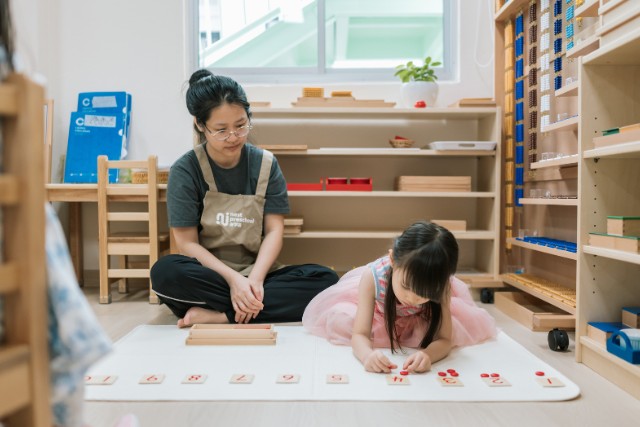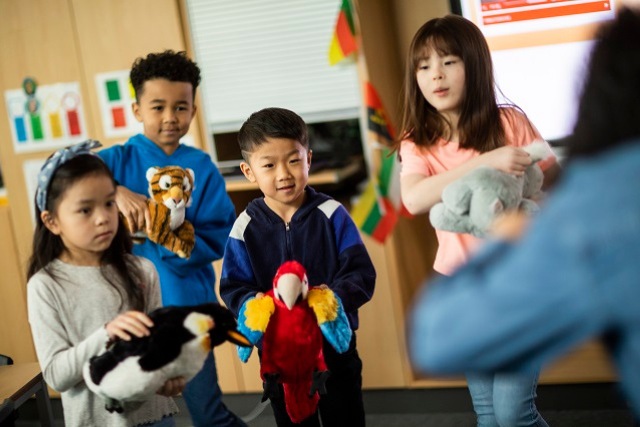Keeping children active has been quite challenging for families over the past year. With lockdowns, school closures and safe distancing, it’s been harder than ever to keep children mentally and physically active. Physically, this is due to not having enough opportunity to play team sports or motivation to exercise and keep fit. Mentally, this has increased the level of distance learning and screen time to keep social. More than ever, children are exposed to so much blue light and screen time rather than outdoor activities. This has an impact on how their brains develop, and as parents, it’s important to harbour good brain health habits for our children despite the challenging environment.
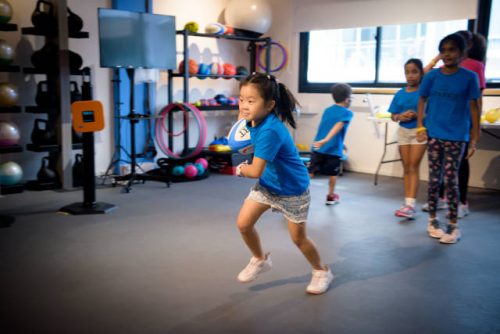
Good brain health in children is influenced by 3 main lifestyle factors: exercise, sleep, and diet. Exercise has significant effects on mental health in children. It increases energy, boosts confidence, reduces stress, enhances mood, and improves sleep. Although all exercise improves brain health, it’s important that we ensure our children are getting the right type of exercise. Steady State Aerobic exercise, for example swimming, cycling or running, is great but doesn’t do as much for brain health as motor/skill exercise, for example sports, dance, or martial arts. This is because when playing a sport, your brain is using so many different parts of the brain compared to what you use when you go for a run.
The best exercise programme for brain health would be a combination of 4 different modalities: resistance, aerobic (swimming, running, cycling), sports, and cognitively enhanced exercise (such as dual-tasking exercises or cognitive motor training). This fourth modality is often left out and can really improve a child’s cognitive health. It requires physical activity to combine with a cognitive game (for example solving arithmetic equations while doing lunges). To really understand the importance of this type of training today, we need to look back at history. Imagine a hunter-gatherer, for instance. He/she would be using many different parts of his/her brain while on the move to catch prey. For example, he/she would be using spatial memory to navigate, problem solving and decision-making skills, cognitive flexibility, sensory attention, motor control, and processing speed. All of these elements are working the different areas of the brain, while also performing physical activity. Nowadays, we have so many crutches to lean on in our everyday life and information is so readily and easily available, that we miss out on actively training our brains to be working at their peak performance. The same goes for children.
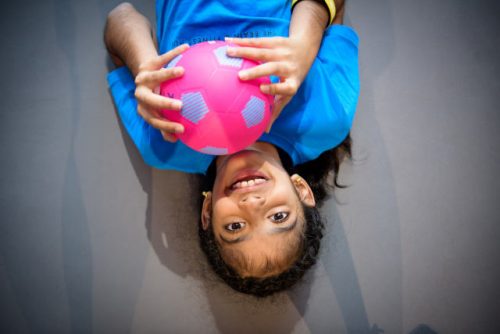
Exercise aside, there are ways we can help our children at home keep their brains active with other activities by playing games, reading out loud, cooking together, building blocks, taking trips into nature, planning a route together – all these examples of activities work on the child’s cognitive development. After-school activities help children boost their level of cognition as well – these are usually a combination of learning, focus, spatial awareness, sensory, and sports performance.
Nutrition is also an important element that can contribute to enhanced brain health. As a parent, we can try to incorporate natural foods that are beneficial for brain function. Some examples are:
- Oily fish (they are rich in omega-3 fatty acids such as DHA and EPA, essential for brain growth and function)
- Eggs
- Lean meat
- Nuts and seeds
- Fruits (especially berries, which are a rich source of antioxidants)
- Vegetables
- Whole grains and oats
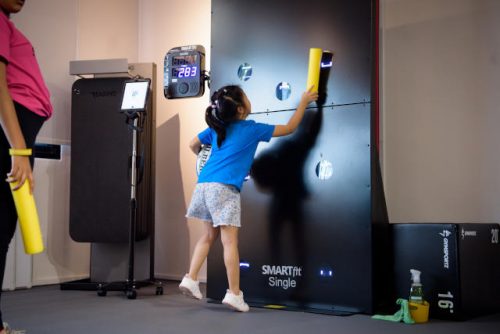
Sleep is another important factor that will impact a child’s brain health. In order to ensure you are setting your child up for a great night’s sleep, here are some tips:
- Ensure they are drinking enough water throughout the day
- Limit screen time / blue light in the evening before bedtime
- Make sure they are sleeping in a room without much light
- Music or White noise can help them sleep
- Try to keep the same bedtime routine each night
In conclusion, the combination of good sleep, nutrition and physical activity will improve your child’s brain and body health. All these three elements complement each other to keep kids mentally and physically active. Incorporating these healthy lifestyle changes into the daily routine doesn’t have to be daunting. Some quick and easy changes will suffice – all exercise is good for brain health, but the more varied the types of exercise the better. Switching prolonged screen time for a bit more activity at home or time outdoors, and incorporating a healthy diet and enough sleep is the recipe for improved brain health in children.
This article is contributed by Anna Milani, founder and CEO of Sparkd. She is a certified Brain Health Trainer and has over 20 years experience in the fitness industry with a diverse range of training and specialisations.
* * * * *
Like what you see here? Get parenting tips and stories straight to your inbox! Join our mailing list here.
Want to be heard 👂 and seen 👀 by over 100,000 parents in Singapore? We can help! Leave your contact here and we’ll be in touch.












